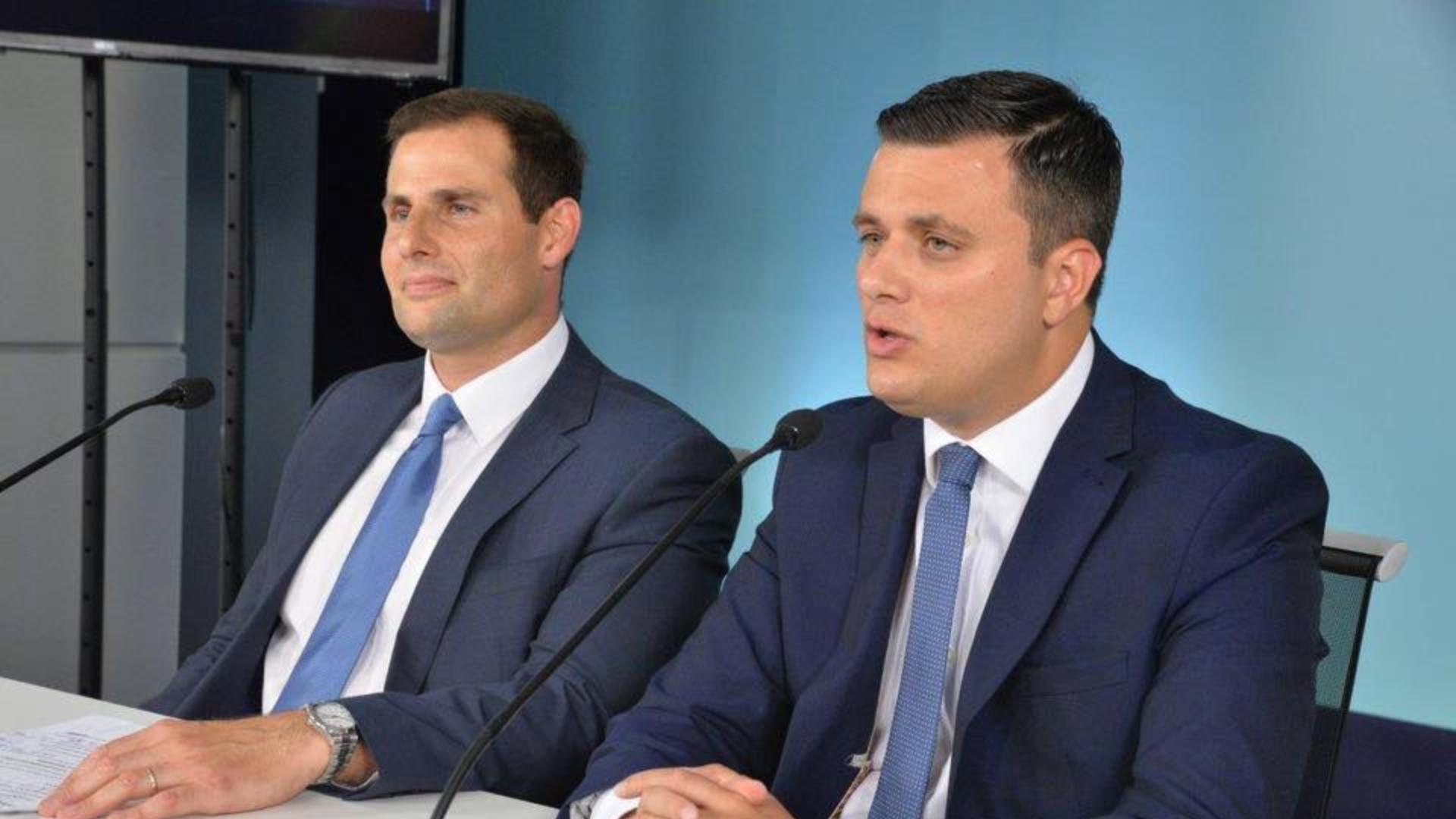Drawing on their knowledge and experience of Malta’s media landscape and guided by international standards on freedom of expression and freedom of the press, authors Joseph Borg and Therese Commodini Cachia have published 16 recommendations for policy, legal and structural changes to Malta’s media system.
Launched on Monday and entitled ‘Reforming Malta’s Media Landscape’, the authors acknowledge that the book and its recommendations are their “contribution to a reform that is still not concluded”.
On 11 January last year, shortly after the Opposition had tabled 12 legislative proposals drawn up based on the recommendations made by the Daphne Caruana Galizia public inquiry board, a committee of media experts was set up by the government.
The media experts committee submitted their recommendations and suggestions in June. But it was not until late September that Justice Minister Jonathan Attard made the government’s proposals public at a press conference.
On 4 October, Attard tabled the media bills in the House of Representatives This prompted more than a hundred Maltese journalists, academics and artists to write to Prime Minister Abela urging him to hold a public consultation on the proposed legislation.
The authors’ first recommendation details the extent to which the Constitution should recognise the right to freedom of expression, including the right to seek information, hold opinions, and receive and impart information and ideas.
This includes the obligation of public authorities “not to interfere with the exercise of the right to freedom of expression by journalists and other media actors, the obligation to facilitate timely access to accurate and reliable information held by public authorities and the protection of journalistic sources”. The authors proceed to list strict criteria to justify any interference.
The government’s current proposal does include within the Constitution’s declaration of principles an amendment to Malta’s Constitution (new article 20B), which describes the recognition of free media and the role of the media as a public watchdog, and the protection of journalists and their sources. However, it does not include the right to receive and impart information or the obligation to facilitate timely access to accurate and reliable information.
Borg and Comodini Cachia also address the thorny issue of the role and governance of Malta’s public broadcaster. They propose merging the Broadcasting Authority (BA) and the Malta Communications Authority (MCA) into a single regulatory body.
They also argue that the dominance of political appointees at the BA and MCA must end and propose that the PBS should not be owned by the government but by a trust or other legal structure funded by a tax. “Both the regulator and the public service broadcaster should be legally, financially, and administratively independent from Government”, the authors conclude.
The government’s proposed Bills do not address any of the long-standing issues with Malta’s public broadcaster, even though a revision of the provision in the constitution that establishes the Broadcasting Authority and its responsibility toward impartiality was also recommended by Daphne Caruana Galizia public inquiry board (pg 441).
Another issue that the government appears to be deliberately ignoring is the revision of Malta’s Freedom of Information Act.
In their recommendations for an enabling media environment, the authors stress that access to information held by public authorities should be the rule, not the exception. They call for introducing clear, enforceable procedures for documenting information and retaining documents. Also, they state that “exceptions to disclosure must be restricted to what is strictly necessary in a democratic society”.
Not only has the government failed to propose any legislative changes to this effect, but it has also rejected the Media Committee’s proposal to add a criterion for the conditions under which access to information is justified in a democratic society.
The extent of the current government’s reluctance to provide information is best illustrated by the fact that the government-commissioned report on reforming the FOI Act is currently being kept under wraps, even though it was completed two years ago.
Borg and Comodini Cachia also call for a clear and systematic system of protection against SLAPPs (Strategic Lawsuits Against Public Participation). They argue that legal protection must apply to all claims, regardless of the nature of the claim or the procedure used. In addition, it must be able to deal with national and cross-border claims and the recognition and enforcement of judgments from third countries.
The government’s current proposals against SLAPPs include amendments to Article 10 of the Media and Defamation Act. These include empowering Malta’s courts to dismiss manifestly unfounded cases.
At the same time, the legal provision still gives discretion to the court to proceed to limit the execution of the judgement “depending on the circumstances of the case” to the amount the Court considers would be due in damages had the case been instituted in Malta.
The government’s tweaked anti-SLAPP law also disregards the recommendations provided by the international organisations OSCE and Article 19.
The authors also touch upon the inadequacy of Malta’s Whistleblower Act, concluding that “whistleblowing in the public sector, through internal and external structures, cannot work as things stand today”. They add that the role of the press in providing information through whistleblowers should also be recognised and protected.
Borg and Comodini Cachia also argue that journalism should be self-regulated and suggest that one of the best ways to make this work would be by establishing a code of ethics administered by a respected press complaints commission.
However, they strongly discourage the idea of a regulatory body or licensing for journalists, saying that “all talk to the contrary undermines the independence of the media from government and further erodes public confidence”.
The national conference by the government-appointed Committee of Media Experts will be held on 15 February at the University of Malta Valletta Campus at 9.00 am.













